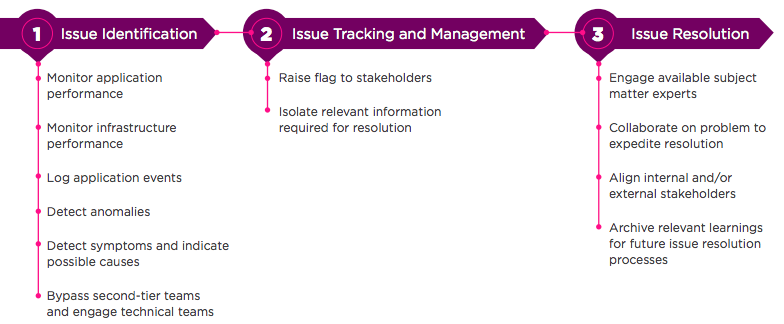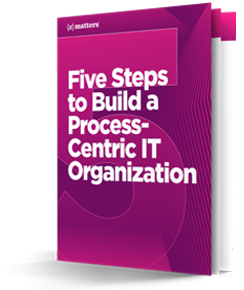Do You Understand Your Essential Business Processes?

Before you can choose the proper tools for your organization, you have to understand its essential business processes. Once you know an essential business process, you can review software applications that will help make your organization more efficient and accurate.
Unfortunately, many organizations do not understand their essential business processes. This makes it nearly impossible for them to streamline their organizations, which puts them at a disadvantage in the marketplace.
This article will help you identify the processes that matter most to your business and the tools you need to move forward in a tech-savvy economy.
The Importance of Understanding Your Business Processes
Knowing your essential business processes makes it possible for you to choose tools that will improve how well your organization functions. Somehow, though, many organizations overlook this crucial step in building successful business models.

Why you need to understand your business processes.
Once you have mapped your business processes, you will know what features you need from your software and hardware. A deeper understanding of your business processes will also help you set priorities. Instead of addressing all issues at once, you can focus on the issues that matter most now. Then, you can move down the list to continually improve your organization.
If you don’t know your business processes, you can’t choose applications that will move you toward increased success. Instead, you’re forced to make decisions without the right type of information.
Common Business Processes for Organizations
Understand that the business processes your organization uses will differ from those of other groups, especially those that operate in other industries.
For many businesses, though, the most important processes include:
- Managing financial and physical assets
- Developing business plans
- Developing new products
- Raising funds
- Managing human resources
- Billing and revenue collection
- Supporting customers
- Leveraging information technology
You can use this list to help you discover processes within your business. However, don’t mistakenly believe your processes will overlap with those of other organizations. Even if you share several traits with a competitor, your processes could still operate in distinct ways that set you apart from other groups.
Identifying Your Essential Business Processes
You can only identify your essential business processes once you’re willing to take an open-minded look at your organization. Drop as many preconceived notions as possible so you will have a clear view of how your business functions.
As you investigate your activities, look for tasks that happen often. If a task occurs multiple times an hour, day, or week, then you have probably identified one of your business processes, or at least one of your process’s supporting activities (more on that below).
For instance, you may notice that your employees spend a lot of time maintaining service-level agreement (SLA) standards of uptime. Your employees likely do this because it helps the company give customers and clients the services that they need to succeed.
With this understanding of one of your essential business processes, you will see that you require lots of supporting activities and tasks. Your approach to these tasks will, in part, determine the success of your process.

Map out essential processes: each stage of the business process has specific activities.
Mapping Supporting Activities for Essential Business Processes
As you dig deeper into the tasks involved in maintaining SLA standards of uptime, you may discover tasks like:
- Monitoring application performance
- Monitoring infrastructure performance
- Logging application events
- Detecting anomalies
- Detecting symptoms and indicating causes
- Bypassing second-tier teams to address issues directly
All of these support tasks contribute to the business process. If they falter, then your business process will fail. Even if you manage to make the process work, you will significantly reduce your efficiency as your supporting tasks don’t contribute to the success of the process.
Managing and Improving Essential Business Processes
Once you have a clear view of everything involved in an essential business process, you can investigate the tasks to determine whether they work well. In some cases, you may discover that the current process works wonderfully. You might find a few ways to tweak its performance, but you’re otherwise happy with the process.
More often than not, you will find missed opportunities you can improve upon. For instance, you may find team members who dedicate their time to maintaining SLA standards of uptime don’t communicate with each other well. One IT professional may send an email to a few people while solving a problem, but the rest of the team gets left out of the loop. When someone gets left out, that person might simultaneously discover the same problem and begin working on a solution. Now, you have at least two people working on similar projects when they could instead be focusing their time and efforts more efficiently.
Adopting the right software makes a big difference in how well you reform your business processes. The xMatters toolchain communication platform, for instance, would recover the above scenario’s wasted effort by relaying information to individuals and groups that need to know about the SLA problem. Instead of letting one person decide who gets notified, the system automatically notifies the right people and teams.
Automating workflows has become an essential part of running a business successfully. With xMatters, you get a tool that recognizes noteworthy events, alerts the appropriate people, and streamlines the workflow so employees can solve the problem more efficiently.
Understanding your essential business processes will always contribute to your success. Having the right tool to improve your processes, however, will give you a competitive edge.
xMatters uses integrations to help move your processes forward by getting notifications and information into the systems and to the people that need it. Ready to try out xMatters? Let us show you how it can transform your operations—request your demo today.

